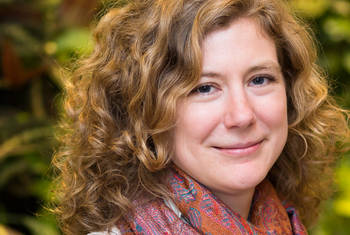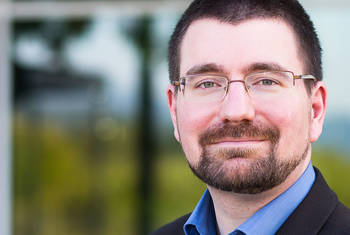Ulf Liszkowski Do Infants Understand Others as Mental Agents and Communicate Meaningfully Before They Acquire Language?
Ulf Liszkowski is Professor of Developmental Psychology at the University of Hamburg. He is also Research Fellow of the Donders Institute for Brain, Cognition and Behaviour at the Radboud University, Nijmegen (Netherlands) and was Leader of the Max Planck Research Group ‘Communication Before Language’. He has received the George Butterworth Young Scientist Award (2007) and the International Society for Infant Studies Conference Award (2008). His research interests include the origins and development of human social interactions and communication.
Area of Research
Developmental Psychology
since 2012
Professor of Developmental Psychology
University of Hamburg (Universität Hamburg) (more details)
2008-2013
Research Group Leader
Max Planck Institute for Psycholinguistics
Max Planck Research Group Communication Before Language
2007
Post-Doc
Max Planck Institute for Evolutionary Anthropology
2006-2007
Lecturer in Developmental Psychology
Leipzig University (Universität Leipzig)
2005-2006
Post-Doc
Max Planck Institute for Evolutionary Anthropology
Department of Developmental and Comparative Psychology
2002-2005
PhD
Max Planck Institute for Evolutionary Anthropology
Department of Developmental and Comparative Psychology
2002
Diploma
University of Hamburg (Universität Hamburg) (more details)
2001
Master of Science in Developmental Neuropsychology
University of Essex
- American Psychologist
- Applied Psycholinguistics
- Behavioral Processes
- British Journal of Developmental Psychology
- Cognition
- Child Development
- Developmental Psychology
- Developmental Review
- Developmental Science
- Deutsche Forschungsgemeinschaft
- First Language
- Gesture
- Human Development
- Interaction Studies
- Journal of Child Language
- Journal of Comparative Psychology
- Journal of Experimental Child Psychology
- Language Learning and Development
- NSF
- Oxford University Press
- Psychological Science
- Review of Philosophy and Psychology
- Science
- Social Development
- Social Psychology
- Association for Psychological Science
- Jean Piaget Society
- Society for Research in Child Development
- European Society for Developmental Psychology
Fellowships
- Research Fellow of the Donders Institute for Brain, Cognition and Behaviour; Radboud University, Nijmegen (since 2010)
Prizes
- International Society for Infant Studies Conference Award (2008)
- The George Butterworth Young Scientist Award (2007)
 © Merlin Senger
© Merlin Senger

University of Hamburg (Universität Hamburg)
Hamburg, GermanyUniversität Hamburg is the largest institution for research and education in the north of Germany. As one of the country's largest universities, we offer a diverse course spectrum and excellent research opportunities. The University boasts numerous interdisciplinary projects in a broad range of subjects and an extensive partner network with leading institutions on a regional, national and international scale. Universität Hamburg offers approximately 170 degree programs in the following eight faculties: Faculty of Law; Faculty of Business, Economics and Social Sciences; Faculty of Medicine; Faculty of Education; Faculty of Humanities; Faculty of Mathematics, Informatics and Natural Sciences; Faculty of Psychology and Human Movement; Faculty of Business Administration (Hamburg Business School). The University was founded in 1919 by local citizens. Important founding figures include Senator Werner von Melle and the merchant Edmund Siemers. (Source: University of Hamburg)
Faculty
Institute of Psychology
xxx
Map
How do humans understand each other? One unique aspect is the evolution of more than six thousand languages on earth. In order to use language meaningfully a certain social cognitive infrastructure is needed. This infrastructure turns out to be prior to the acquisition of language in humans. The research presented in this video investigates how infants learn to communicate and how they understand other people’s intentions and needs before they speak. ULF LISZKOWSKI and his team used a variety of experimental methods, such as eye tracking, EEG and observation, to establish that one-year-old infants already have an awareness of other people’s mental states: they want to help and share information by pointing to things. This makes human communication unique even prior to language acquisition.
LT Video Publication DOI: https://doi.org/10.21036/LTPUB10423
Two Sources of Meaning in Infant Communication: Preceding Action Contexts and Act-accompanying Characteristics
- Ulf Liszkowski
- Philosophical Transactions of the Royal Society B
- Published in 2014









